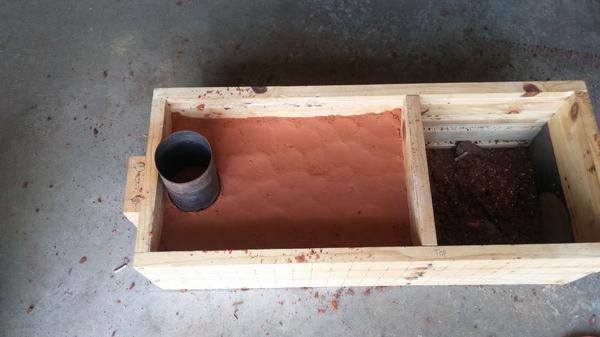8 Simple Techniques For Alcast Company
8 Simple Techniques For Alcast Company
Blog Article
Some Of Alcast Company
Table of ContentsThe 5-Second Trick For Alcast CompanyThe Ultimate Guide To Alcast CompanyThe smart Trick of Alcast Company That Nobody is Talking AboutAlcast Company Fundamentals ExplainedAlcast Company Things To Know Before You Get ThisThe Buzz on Alcast Company
The subtle difference hinges on the chemical content. Chemical Contrast of Cast Light weight aluminum Alloys Silicon promotes castability by minimizing the alloy's melting temperature level and improving fluidness during spreading. It plays a vital duty in allowing intricate mold and mildews to be loaded accurately. Furthermore, silicon adds to the alloy's toughness and wear resistance, making it valuable in applications where resilience is essential, such as vehicle parts and engine parts.It additionally enhances the machinability of the alloy, making it simpler to process right into completed items. In this way, iron adds to the total workability of aluminum alloys. Copper boosts electric conductivity, making it advantageous in electric applications. It additionally improves corrosion resistance and adds to the alloy's total stamina.
Manganese adds to the toughness of aluminum alloys and improves workability. Magnesium is a light-weight element that provides strength and influence resistance to light weight aluminum alloys.
The Ultimate Guide To Alcast Company
It enables the manufacturing of light-weight parts with outstanding mechanical properties. Zinc improves the castability of aluminum alloys and helps regulate the solidification procedure throughout spreading. It boosts the alloy's toughness and hardness. It is often found in applications where complex forms and fine information are needed, such as ornamental castings and certain automotive components.

The primary thermal conductivity, tensile toughness, yield stamina, and elongation differ. Select ideal basic materials according to the efficiency of the target product created. Amongst the above alloys, A356 has the greatest thermal conductivity, and A380 and ADC12 have the cheapest. The tensile limit is the opposite. A360 has the ideal return strength and the highest possible elongation price.
Getting The Alcast Company To Work

In accuracy spreading, 6063 is fit find more information for applications where complex geometries and premium surface area coatings are vital. Instances consist of telecommunication units, where the alloy's remarkable formability permits streamlined and cosmetically pleasing styles while keeping structural integrity. In the Lights Solutions industry, precision-cast 6063 elements produce sophisticated and reliable lighting components that need intricate forms and great thermal performance.
The A360 exhibits exceptional elongation, making it optimal for facility and thin-walled parts. In precision spreading applications, A360 is fit for industries such as Consumer Electronics, Telecommunication, and Power Devices.
Everything about Alcast Company
Its one-of-a-kind properties make A360 a beneficial selection for accuracy spreading in these sectors, boosting item resilience and high quality. Aluminum Casting. Light weight aluminum alloy 380, or A380, is a commonly used spreading alloy with several distinct qualities.
In precision spreading, aluminum 413 beams in the Customer Electronics and Power Equipment industries. It's typically made use of to craft elaborate parts like smartphone housings, electronic camera bodies, and power device coverings. Its precision is impressive, with tight tolerances approximately 0.01 mm, making certain flawless product assembly. This alloy's exceptional deterioration resistance makes it an outstanding selection for outside applications, ensuring long-lasting, sturdy products in the stated markets.
The Basic Principles Of Alcast Company
As soon as you have decided that the light weight aluminum die casting procedure is suitable for your task, an important next step is choosing one of the most suitable alloy. The aluminum alloy you choose will significantly affect both the casting procedure and the homes of the end product. As a result of this, you need to make your choice carefully and take an enlightened strategy.
Establishing one of the most suitable light weight aluminum alloy for your application will suggest considering a vast range of attributes. These comparative alloy attributes adhere to the North American Die Spreading Association's guidelines, and we've divided them right into 2 classifications. The first group addresses alloy attributes that impact the production process. The 2nd covers attributes influencing the properties of the last product.
The Ultimate Guide To Alcast Company
The alloy you select for die spreading straight affects numerous elements of the casting procedure, like just how easy the alloy is to deal with and if it is prone to casting flaws. Warm breaking, also called solidification splitting, is a typical die spreading flaw for aluminum alloys that can cause internal or surface-level rips or fractures.
Certain aluminum alloys are more prone to hot cracking than others, and your choice should consider this. One more usual flaw located in the die casting of aluminum is pass away soldering, which is when the cast sticks to the die wall surfaces and makes ejection difficult. It can damage both the cast and the die, so you need to try to find alloys with high anti-soldering buildings.
Deterioration resistance, which is currently a significant feature of aluminum, can differ considerably from alloy to alloy and is a vital characteristic to take into consideration depending on the ecological problems your item will certainly be exposed to (aluminum casting manufacturer). Wear resistance is one more residential property frequently looked for in light weight aluminum items and can distinguish some alloys
Report this page